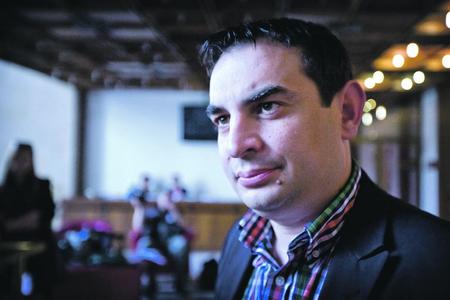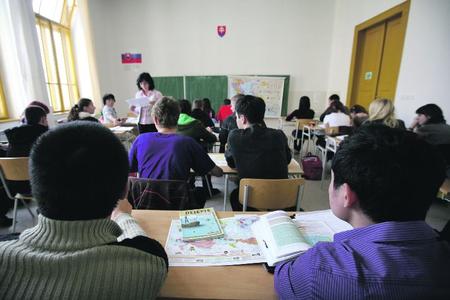- Cypriot recipes: Mahalepi (video included)
- Slovak folklore making a comeback: Unique diversity survived
- Is Slovakia a mafia state?
- Estonian recipes: Estonian potato salad (video included)
- Talking tourism, trade and tapas
- Slovakia is not a mafia state yet, but it is in danger
- Norwegian recipes: Reindeer filet/sirloin (video included)
- Caught by the gravitational pull of Europe, this American is rediscovering his Slovak roots
- Slovakia’s economy enters increasingly troubled waters
- Kanye West is heading to Bratislava. The controversy is not far behind
- Foreign workers fill record number of jobs, but fewer are highly skilled
- Scientists in Slovakia helping create ‘breathing’ glass Photo
- Slovak AI startup raises millions to scale globally and boost legal tech innovation
- Villages choke on smoke as landfill fire burns for second month Photo
- Rare brain-eating amoeba kills child in Slovakia
- Kanye West is heading to Bratislava. The controversy is not far behind
- Slovakia’s economy enters increasingly troubled waters
- Caught by the gravitational pull of Europe, this American is rediscovering his Slovak roots
- Foreign workers fill record number of jobs, but fewer are highly skilled
- News digest: Pellegrini backs NATO’s defence target, praises extended deadline Photo
- Scientists in Slovakia helping create ‘breathing’ glass Photo
- Villages choke on smoke as landfill fire burns for second month Photo
- Slovakia’s place in Europe’s economy is shifting
- Bratislava’s Nová Tržnica reinvents itself with Yellow Thursdays Photo
- Kanye West is heading to Bratislava. The controversy is not far behind
- Rare brain-eating amoeba kills child in Slovakia
- From Seattle to Bratislava: an American’s reverse migration story
- Slovakia’s economy enters increasingly troubled waters
- Caught by the gravitational pull of Europe, this American is rediscovering his Slovak roots
- Slovakia has given up on attracting quality people. It is disgusting, says expert
- Foreign workers fill record number of jobs, but fewer are highly skilled
- From Seattle to Bratislava: an American’s reverse migration story
- A year later, Bratislava’s laser spectacle goes global
- From not knowing an English word to being a noted radio announcer in the US Video
- Rare brain-eating amoeba kills child in Slovakia
- Two Slovaks deported from US and Vietnam in separate incidents
- Slovakia has given up on attracting quality people. It is disgusting, says expert
- Bratislava’s Nová Tržnica reinvents itself with Yellow Thursdays Photo
- Last Week: Revenge-hungry Smer voters feast on donated ammunition case
- Top 10 events in Bratislava for foreigners
- 3 free things to do in Bratislava in the next seven days
- Slovak AI startup raises millions to scale globally and boost legal tech innovation
- Slovakia’s economy enters increasingly troubled waters
- News digest: Pellegrini backs NATO’s defence target, praises extended deadline Photo
- Don’t you want to?
- Slovak roots: feeling the gravitational pull of Europe
- Kanye West is heading to Bratislava. The controversy is not far behind More articles ›










